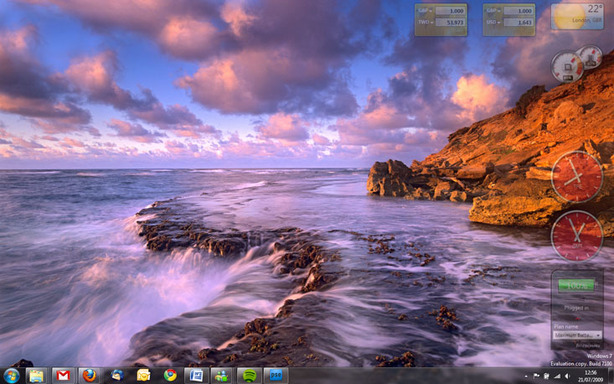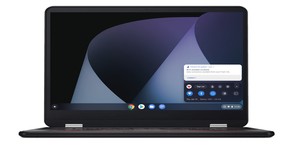Fighting familiarity
The search giant's strength is, of course, its online portfolio, so its desire to make a ruthlessly online focussed OS comes as no surprise. The platform doesn't appear to offer much for application developers: "the web is the platform. All web-based applications will automatically work and new applications can be written using your favourite web technologies," said Google's statement.Does this mean that users won't be able to install anything at all on the OS, or will we see an application store similar to the Android Marketplace? It's difficult to put into perspective at the moment but given that there's a redesigned security infrastructure, Chrome OS could forego application installation completely.
That's not going to please everyone because many of us still live and die by our local applications, spending as much of our time offline as we do online. I certainly do and, while I work online and have much of my working life in the cloud - my calendars, contacts, documents, email and photos are accessible on any device I happen to connect to the Internet with and I've got multiple devices syncing data - it's still far from perfect. There are often times where I'm greeted with frustration because I didn't have time to prepare for an offline stint.
This isn't an unsolvable problem though, because with frameworks such as Google Gears, it is possible to work in your browser while you're offline... providing you've opened the web app (e.g. Google Mail) before pulling the plug. HTML 5 will also help to solve this problem as well, as it features support for offline web apps - by the time Chrome OS is released, developers should hopefully be using HTML 5 to some extent and all major browsers should have support by then too.

A cut down version of Windows 7 will run on netbooks
Another concern that many will have is being able to use applications that are familiar enough (if not the same) as the applications they've become accustomed to under Windows XP. Chrome will be Linux based so you're not going to be able to install Windows apps on it. "Is that what most people want?" asked PC Magazine's Michael Miller on his Forward Thinking blog. "Today, the answer is clear: no."
Part of the reason why Linux on netbooks didn't succeed was because it simply wasn't as familiar as Windows XP. "The vast majority of users wanted Windows XP, because they wanted the interface they were familiar with, application compatibility, and support for all their devices," Miller added.
Of course, there are plenty of applications that could be classed as the Linux equivalent of your favourite Windows application. They do a similar job as their Windows counterparts, but they aren't exactly the same and people in general are resistant to change - based on what Google has said though, users won't even be able to use the Linux equivalent apps, meaning there'd be no Microsoft Office, no Photoshop, no iTunes and there wouldn't even be a local email client.
This would be a bad thing because "both users and developers are still hungry for so-called 'native' applications - that is, software designed for a particular operating system," said Nick Mediati at PC World. The prime example of this at work is the iPhone because, at Worldwide Developers Conference 2007, Apple said that developing web apps would be a "pretty sweet way [to develop for iPhone]", but users and developers didn't want web apps; they wanted real apps "that could take full advantage of the technology the iPhone offered."
However, in the case of the iPhone, Apple didn't see the web as a fitting destination to develop its own apps - it was using object orientated C and the result was a user experience far and above anything developers could create in Mobile Safari. With that in mind, Chrome OS "sounds a lot more like Palm's WebOS than it does the iPhone [OS]," said John Gruber on Daring Fireball. Palm isn't just telling third party developers to use the web, it's doing it itself with its own built-in apps. That's exactly the approach Google has already taken with Google Apps.
In addition, there are parts of the Microsoft Office suite that are heading to the web, but they won't be fully functional like their desktop equivalents as they will be free providing you've got a Windows Live account. There's also Photoshop.com for all of your image editing needs, but again it's very limited in many respects and you're unlikely to replace real Photoshop with that on your desktop.

MSI MPG Velox 100R Chassis Review
October 14 2021 | 15:04









Want to comment? Please log in.